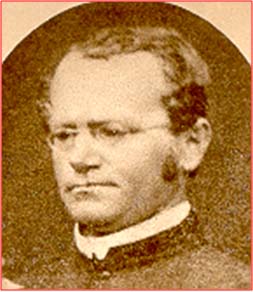
none
Study Questions:
1) Explain how a continuously variable trait could be governed by genes.
2) What is an epistatic interaction? Give an example.
3) How can genes interact to affect a single phenotypic trait? Give an example.
4) Describe how the position of a gene can affect its effect.
5) How can the environment influence the expression of a trait?
6) How can the environment influence the VALUE of a trait? Relate this to Darwin's idea of the diverge of populations in different environments.
7) Why are most lethal alleles recessive? Answer with respect to the effects of selection on a dominant, deleterious gene.
8) As such, how can a dominant lethal allele be maintained in a population?
9) A typical problem on the next exam:
10) Consider this cross:
AaBbCc x AaBbCC
- assume independent assortment of the three genes
- There is incomplete dominance at the A locus (meaning A is incompletely
dominant to a).
- There is complete dominance at the B locus.
- There is overdominance at the C locus.
How many genotypes are possible in the offspring?
How many phenotypes are possible in the offspring?
11. Conduct the following cross: Aa x Aa
Determine the genotypic and phenotypic ratios if there is:
- complete dominance
- Incomplete dominance
- Codominance
- Overdominance
12. Provide a cellular explanation for overdominance.
13. A typical problem on the next exam:
14. Consider this cross:
AaBbCc x AaBbCC
- assume independent assortment of the three genes
- There is incomplete dominance at the A locus (meaning A is incompletely
dominant to a).
- There is complete dominance at the B locus.
- There is overdominance at the C locus.
How many genotypes are possible in the offspring?
How many phenotypes are possible in the offspring?
15. Diagram a cell, 2n=4, as it goes through Meiosis.
16. Explain how recombination creates an extraordinary amount of variation.
17. Explain how the movement of chromosomes in Meiosis I provides a mechanistic description of how Mendel's two principles work.